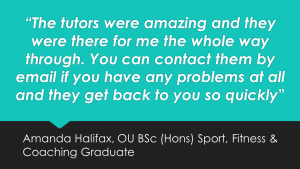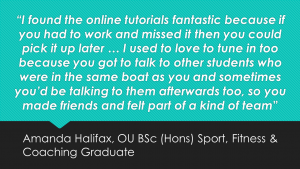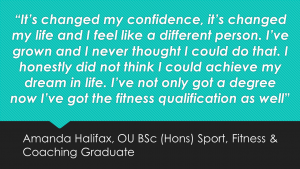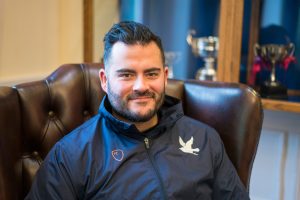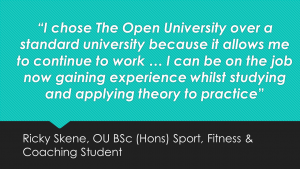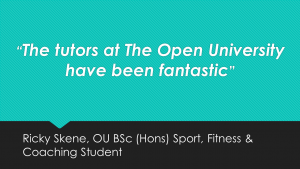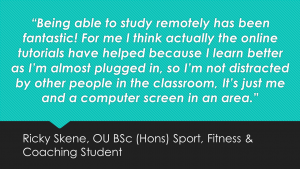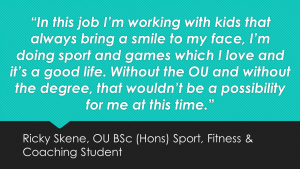By Helen Owton
On Sunday 6th August 2017, the Netherlands stormed the final after a stunning 4-2 win against Denmark having knocked out the Lionesses in a surprising win. At the start of the tournament, however, they were ranked 9th with favourites Germany being knocked out by Denmark in the quarter finals. When the hosts win it adds weight to the argument that ‘home advantage’ is a powerful weapon, but surely, home advantage can’t be that powerful?
https://www.youtube.com/watch?v=SrscHFoIKlo
Home advantage
Firstly, the idea of home for an individual performer may be very different, however, and the concept of ‘home’ is thus one that differs for each sport and its performers. Nonetheless, home advantage is a phenomena which has been a hotly debated contentious issue but appears to be very real. Research on home advantage found that home teams are more likely to win 53-69% of the time (Courneya and Carron, 1992). Indeed, research shows that nations hosting international sporting events can improve their medal count by around 25% (UK Sport, 2011). For example, in London 2012, ‘Team GB’ achieved a 27.8% increase in medal count (47 in 2008; 65 in 2012).
Various reasons have been sought to explain this home advantage phenomena. The presence of a supportive audience appears to be the most critical factor (Cox, 2012) and the size, density and proximity are important aspects to consider when evaluating the influence a crowd has which can activate the autonomic nervous system producing physiological and psychological arousal. This of course could have positive or negative effects on both teams. For example, a home team might feel ‘overwhelmed’ by the pressure of such a momentous occasion but an away team may experience the pressure in a different way.
Other factors include the issue of travelling to distant venues for visiting athletes; the unfamiliarity of stadiums and changing rooms for away teams, for example (Pollard, 2006). Nonetheless, the home advantage is dependent on a number of factors, including the familiarity of surroundings, the effect of travel on the opposition, an evolved response to defend home territory and the impact of the belief that we are more likely to be successful at home. Additionally, some of these factors are interrelated because the home crowd’s support might indirectly influence the thoughts and actions of the referee as well as the opposing team.
Indeed, Lucy Bronze mentions that the game against Netherlands was ‘a different game’ and needed to ‘silence the crowd’ and that referee decisions didn’t go their way.
Referee bias
In the Lionesses versus Netherlands game there were some hotly debated referee decisions. Indeed, referee bias is one of the many factors that contribute to home advantage. The idea that there is an unconscious impact that the home crowd have on refereeing decisions is a contentious one and is obviously hotly disputed by most sporting officials. Nonetheless, it could be that the power and strength of the home crowd subconsciously encourages a referee to go along with a crowd particularly if the decision is open to interpretation.
I think what makes home advantage so impressive is that unexpected teams win and it’s always surprising to watch a low ranked team work their way to victory! There were indeed some other unexpected stories in this year’s women’s EURO 2017.
Unexpected stories
Out of the teams making their debuts in the final this year Austria (ranked 13) quickly became the team to watch as they built on their successes and got strong and stronger after each game until they lost against Denmark (ranked 12th) on penalties (3-0). A great experience for Austria! France were strong contenders but were knocked out by England. Whilst Germany (ranked 1st) dominated the tournament since winning in 1989 making it an impressive total of champions 8 times, they got knocked out by Denmark in the quarter finals opening up the way for a new champion team! The hope was on the England to win the tournament, possibly adding pressure to their game as they played Netherlands. With the large supportive home crowd, it wasn’t to be for England.
Media success of Women’s Football
The fact that there has been a possibility of ‘home advantage’ during this WEURO2017 indicates the large crowd sizes which have been approx. 30,000. Additionally, Channel 4 have shown all the matches and peaked 4 million audience sizes, beating Celebrity Big Brother and Panorama (Sweeney, 2017). A huge leap for women’s football and the misogynistic comments on twitter are becoming an old fashioned dying breed.
I’m sure the nation will be excited about the Women’s World Cup in 2019 which is to take place in France! It will be interesting to watch whether the ‘home advantage’ will have the same results for France.
*Home advantage is a topic covered in E313 Exploring Psychological aspects of athletic development. If you are interested in studying sport and fitness at the OU please visit the ‘study with us’ tab at the top of the page.
References
Corneya, K.S. and Carron, A.V. (1992) ‘The home advantage in sport competitions: a literature review’, Journal of Sport and Exercise Psychology, vol. 14, pp. 28–39.
Cox, R. (2012) Sport Psychology: Concepts and Applications, New York, McGraw-Hill.
Pollard, R. (2006) ‘Home advantage in soccer: variations in its magnitude and a literature review of the interrelated factors associated with its existence’, Journal of Sport Behavior, vol. 29, pp. 169–189.
Sweeney, M. (2017). England’s Lionesses smash TV audience record in Euro 2017 semi-final, The Guardian, [online, 4 August]. Available: https://www.theguardian.com/media/2017/aug/04/englands-lionesses-smash-tv-audience-record-euro-2017-semi-final-women-football
UK Sport (2011) ‘Home Advantage – The performance Benefits of Hosting Major Sporting Events’ [online]. Available at www.uksport.gov.uk/docLib/what-we-do/…/Home-Advantage.pdf

